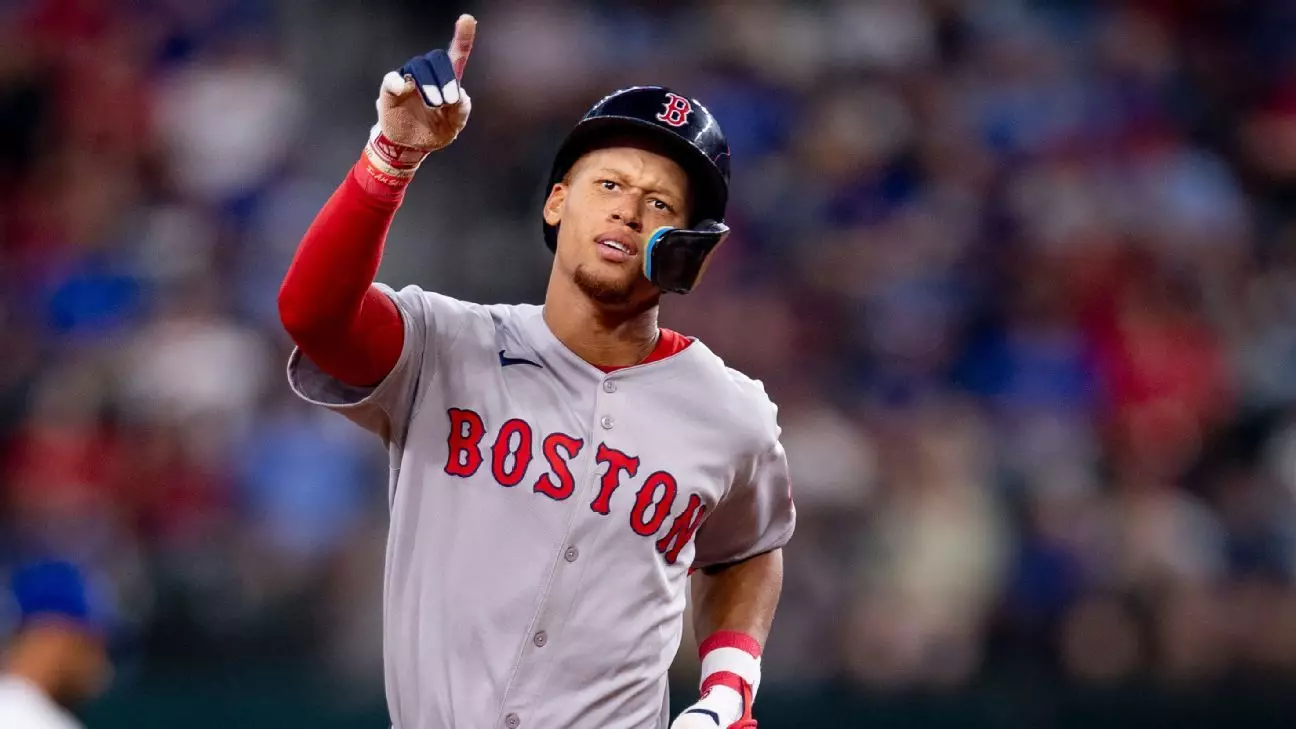The Boston Red Sox made a calculated decision that signals both their faith in their young talent and the tactical reshaping of their roster. Rookie Kristian Campbell, who burst onto the scene in April with vibrant offensive statistics, has been sent down to Triple-A. This move paves the way for Wilyer Abreu’s return from the injured list. While sending a much-lauded rookie back to the minors might seem like a setback, it displays the team’s commitment to developing its players properly and preparing them for sustained success.
The trading of star slugger Rafael Devers to the San Francisco Giants left a significant void in Boston’s lineup, but it also opened up numerous opportunities for other players to step up. Abreu’s return is eagerly anticipated as he seeks to reinvigorate the squad that ranks impressively in offense but also aims to add depth and versatility to an increasingly competitive outfield.
Kristian Campbell’s Rollercoaster Journey
Kristian Campbell’s rise to the major leagues was nothing short of meteoric. After securing the title of Minor League Player of the Year, he signed a generous eight-year, $60 million extension, signaling the organization’s investment in his potential. The early stages of the season validated this faith as he took home the American League Rookie of the Month honors for April, boasting a .301 batting average, complete with a powerful display of skills at the plate.
However, the subsequent struggles have served as a sobering reminder that the transition to the major leagues is fraught with challenges. Since those bright early days, Campbell’s performance has nosedived: a stark .159 average since May raises questions about his readiness for the rigors of day-in, day-out big league play. His inability to adapt not only affected his batting but also led to defensive difficulties, reducing him to a shadow of the player who electrified fans just months prior.
Despite the 23-year-old’s setbacks, it’s important to remember his potential. Resilience is critical in professional sports, and Campbell’s unique batting stance, coupled with his ability to generate high exit velocities, shows what he can achieve if he can find consistency. The sent-down reality may serve as a catalyst for growth, allowing him to reset mentally and reconnect with the skills that propelled him into the spotlight.
Welcoming Back Wilyer Abreu: A Strategic Reinforcement
The anticipated return of Wilyer Abreu offers a glimmer of optimism for the Red Sox’s lineup. At 26, Abreu is stepping into his prime and nails his opportunity right in the middle of a season where injuries have at times derailed the team’s momentum. Previously, he demonstrated solid offensive prowess, with a respectable .245 batting average and 13 homers this season. His return will undoubtedly enhance the offensive dynamic of a team that has already proven capable of generating runs, ranking fifth in the league with 358 runs scored.
Abreu’s versatility adds another layer of depth to the outfield, joining Gold Glove contender Ceddanne Rafaela, All-Star Jarren Duran, and emerging talent Roman Anthony. Abreu’s return signals the coaching staff’s trust in his ability to not only reclaim his starting position but also play a crucial role in bolstering Boston’s playoff aspirations. His capacity to contribute on both sides of the ball will be essential, especially with the adjustments necessitated by the recent lineup shakeup.
A Learning Experience Amidst Competitive Pressure
While acquiring talent via trades is often highlighted in the conversation surrounding baseball rosters, the underlying truth is that development happens in various forms. For Campbell, this demotion serves not as a failure but as a critical opportunity to hone his skills and return as a potent contributor. Meanwhile, the return of established players like Abreu underlines the depth and competition that make the Red Sox a formidable team.
The season remains long, and each player’s journey can take unpredictable turns. Navigating these challenges effectively requires a nuanced approach where patience and strategic insights will determine the trajectory of potential stars like Campbell and established talents like Abreu. In the high-stakes environment of Major League Baseball, adaptability may just be the most vital quality for managers and players alike.
As the Red Sox prepares for the return of Abreu and looks ahead, the choices made today are sure to shape the team’s prospects for tomorrow, making each decision critical for both immediate success and long-term viability in an unpredictable game.


Leave a Reply